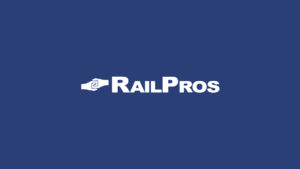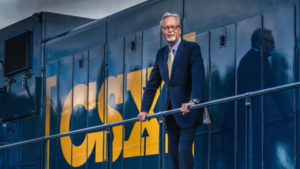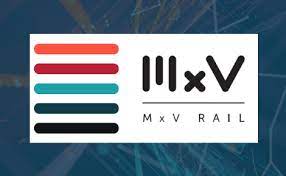Shipping oil by rail touted over pipeline
Written by jroodOne of Canada's oldest industries could open new markets to Asia without the need for an expensive or controversial pipeline to the West Coast, executives from both major railroads said, the Calgary Herald reports.
Speaking at an oilsands
conference in Calgary, James Cairns, a vice-president with the Canadian
National Railway said the company could ship as much oil by rail as a conventional
pipeline to deepwater ports at Kitimat and Prince Rupert without many of the
regulatory issues faced by Enbridge Inc. and its proposed Northern Gateway
pipeline.
"Our infrastructure
is already there," he said. "We’re not going to be the one to build tankage or
vessel berths or anything like that in (Prince) Rupert. Certainly if there’s a
connection to be made between producers and if there are buyers in Asia that
want to buy it, the rail network is there, we’re ready to go now."
Likewise, Stephen
Whitney, the Canadian Pacific Railroad’s vice-president of marketing, said
Vancouver could be a viable export point for Canadian oilsands crude.
"The rail network is
there, it reaches key markets and we have the proven expertise," he said.
"Rail can play a key role here."
Oilsands producers have
been struggling to diversify export beyond the United States, which buys virtually
all of Canadian oil and gas exports.
But the proposed Northern
Gateway pipeline has been plagued by protests from West Coast environmentalists
and aboriginal groups who are opposed to tanker traffic off the West Coast.
Confidence in pipelines
was further rattled last summer after a series of leaks on Enbridge’s Lakehead
system shut-in more than 600,000 barrels per day for more than six weeks while
the incidents were investigated by U.S. authorities.
Even after it was
restarted, the pipeline continues to operate at reduced pressures resulting in
apportionment and lower export volumes into key U.S. markets. Various oil
companies and even the Alberta government have blamed the leaks for tens of
millions of dollars in lost revenues.
Market analysts have said
the Enbridge spills also distorted markets by widening differentials or quality
discounts between light and heavy crudes that resulted in lower selling prices
for Canadian oil that further reduced revenues and also royalty payments to the
provincial treasury.
According to Whitney,
rail cars are more flexible with more options for transporting oil virtually
anywhere in North America with sufficient capacity to keep up with oilsands
production expansions.
Rail spills tend to be
smaller and tanker cars can be easily rerouted in event of an accident, so
deliveries can continue unabated without disruption. "Continuity of
service is the key," he added.
In addition, the railroads
own thousands of kilometers of rights-of-way that are already permitted for
construction of new lines where none presently exist.
CN’s Cairn’s agreed that
interest in rail transport spiked after the Enbridge leaks in Michigan and
Illinois this summer. He said perception that oil can only be moved by pipe is
one of the biggest challenges his company faces in gaining new deals.
"It (the Enbridge
leaks) really was a catalyst for seeing some oil moving by rail that probably
wouldn’t have before. It was a good opportunity to test the concept and prove
to folks that rail can be that bridging mechanism."





